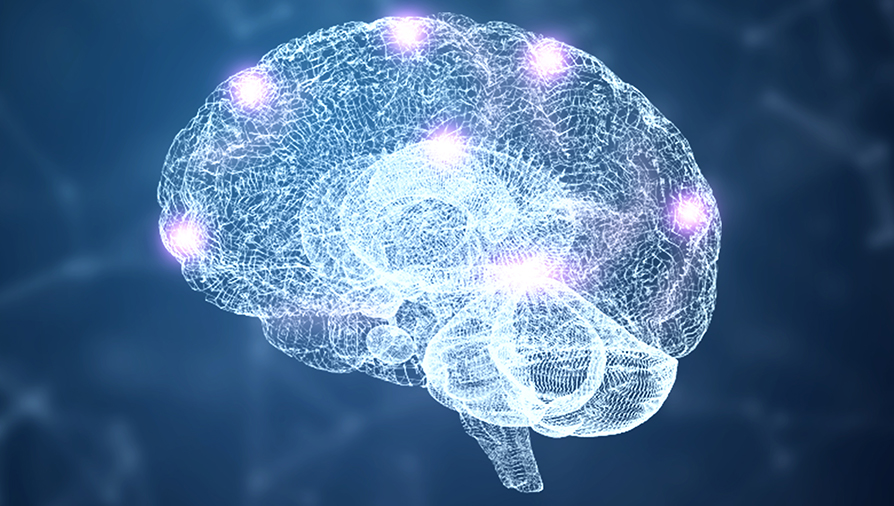
About the concentration in Physical and Life Sciences
The physical and life sciences share fundamental principles that lie at the heart of scientific discovery and innovation. In this concentration, you develop a solid foundation in both branches of science by completing interdisciplinary foundation requirements covering biology, chemistry, and physics.
The Physical and Life Sciences concentration can be completed entirely online.
Penn LPS Online students may enroll in online courses within the Climate Change and Neuroscience course blocks without committing to the Physical and Life Sciences concentration.
The concentration in Physical and Life Sciences prepares you to:
- Understand the broad principles of science and the ways scientists in a particular discipline conduct research
- Learn the steps in the scientific method and identify them in published scientific research
- Interpret quantitative and qualitative evidence, including graphical representations
- Analyze and evaluate alternative scientific points of view
- Read scientific research critically to understand its role in public debates and discourse
- Apply scientific research to explain phenomena and events
- Communicate scientific findings and debates to a range of audiences through oral, visual, and written media
- Explore the ethical considerations related to scientific research and clinical care of patients
Courses
Students in the Bachelor of Applied Arts and Sciences degree will choose a concentration to tailor their undergraduate education to specific personal and professional goals. Courses within each concentration may be taken in any order unless prerequisites are specified.
Students must complete foundational courses for the Bachelor of Applied Arts and Sciences degree. In addition, students in this concentration focus their studies by completing a total of 12 courses (12 c.u.*):
- SPRO 1000: Scientific Reasoning
- 4 foundational courses:
- 2 additional courses in the Climate Change course block
- 2 courses in the Neuroscience course block (beginning with NEUR 1000: Introduction to Neuroscience)
- 3 additional courses with input from an academic advisor
A minimum of 3 of these 12 courses must be at the 3000 level or above.
Course options
Climate Change course block
- CLCH 1600: Oceanography
- CLCH 2100: Introduction to Disaster Management
- CLCH 2200: Atmospheric Science
- CLCH 2300: Climate Change
- CLCH 3000: Communicating Science
- CLCH 3100: Global Environmental Issues
Mathematical Sciences course block
- MTHS 1000: Mathematical Foundations for Data Analytics
- MTHS 2000: Mathematics All Around You
- MTHS 2200: Introduction to Applied Statistics
Neuroscience course block
- NEUR 1000: Introduction to Neuroscience (required first course)
- NEUR 1600: The Neuroscience of Music
- NEUR 2000: Behavioral Neuroscience
- NEUR 2800: Autonomic Pharmacology
- NEUR 4000: Psychopharmacology
Science Foundations courses
- PHYL 1200: Foundations of Life Science
- PHYL 1600: Foundations of Physical and Chemical Science
- PHYL 2100: Fundamental Chemical Principles
- PHYL 2200: Biochemistry – Chemical Principles of Living Systems*
- PHYL 2300: Physics with Python Applications - Mechanics
- PHYL 2400: Physics with Python Applications - Electromagnetism
*This course may not be offered every academic year. Check the course page or our course guide to see when upcoming terms are added.
The Physical and Life Sciences concentration courses are delivered completely online. On-campus, singular discipline, lab science courses (biology, chemistry, physics, etc.) are not offered as part of the Physical and Life Sciences curriculum or concentration.
Courses are subject to change.
*Academic credit is defined by the University of Pennsylvania as a course unit (c.u.). A course unit (c.u.) is a general measure of academic work over a period of time, typically a term (semester or summer). A c.u. (or a fraction of a c.u.) represents different types of academic work across different types of academic programs and is the basic unit of progress toward a degree. One c.u. is usually converted to a four-semester-hour course.
Certificates related to Physical and Life Sciences
See your advisor to explore earning the following certificates along with your degree. Note that these certificates are not earned automatically upon completing your degree; your advisor will help ensure that your academic plan meets the requirements of your preferred certificate.
Careers related to Physical and Life Sciences
The skills and knowledge acquired in the Physical and Life Sciences concentration are applicable to many health, research, and clinical settings and are a foundation for pursuing further graduate study. Career options include:
- Research coordinator
- Lab manager
- Pharmaceutical sales representative
